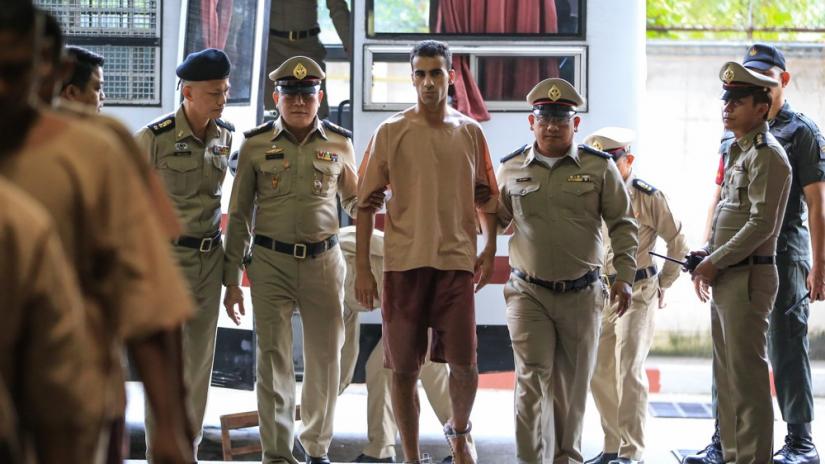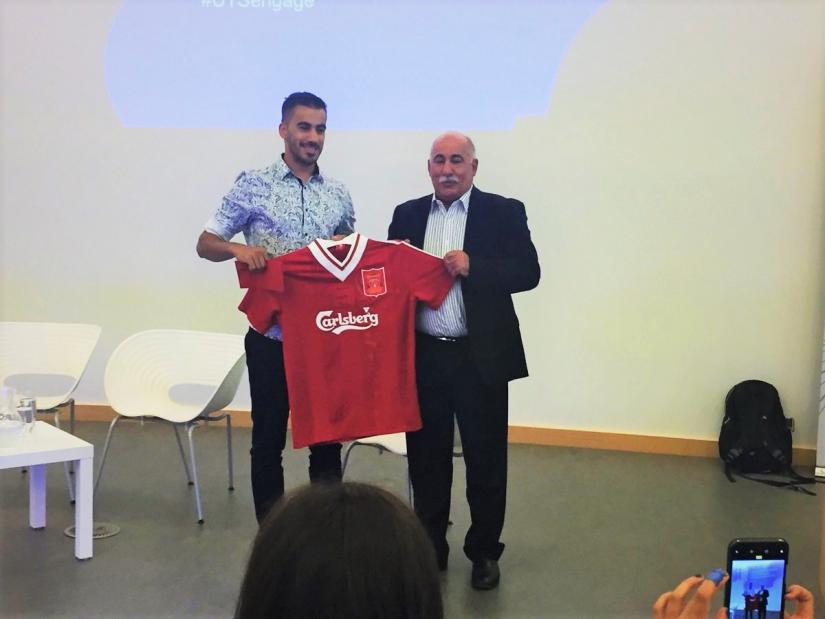
Image: Shutterstock
What is the responsibility of sport to contribute to, and hold countries, participants and officials accountable for, upholding internationally recognised human rights?
This was the question raised by ex-Socceroos' captain Craig Foster at a panel event hosted by the UTS Centre for Business and Social Innovation and The Gulf Institute for Democracy and Human Rights on human rights in Bahrain, featuring refugee footballer Hakeem Al-Araibi.
Al-Araibi was arrested in Thailand while on his honeymoon and held for two months in a Thai jail awaiting extradition to Bahrain, where he faced imprisonment.
It was only through a global campaign to free him, spearheaded by Foster and supported by football fans and players, that Al-Araibi was able to return to Australia.
“There is no doubt that if the worst had happened in Thailand, the consequences would have been horrific for Al-Araibi,” said event panellist and football journalist Bonita Mersiades.
Foster said Al-Araibi’s case had put a “global spotlight on this concept of sport and human rights.”
“In the last decade there are few more heinous, systematic and widespread abuses of athletes than what happened to Hakeem. And yet, the simple question is what have the sports done about it?” said Foster.
Al-Araibi described his detention in Bahrain, following his support for fellow Bahraini footballers who had protested during the Arab Spring.
“I was arrested on my birthday in 2012 and when they took me to the police station they started torturing me for five hours," he told the audience.
"The torture was all in my legs, they used to tell me that I was not going to play again. They beat my legs very hard, I couldn't walk from the pain," he said.
Fox sports journalist Simon Hill said Bahraini athletes in particular who fought for democracy, athletes like Al-Araibi, paid a very heavy price for speaking out.
“Many remain behind bars or silenced through fear,” said Hill.

Hakeem Al-Araibi is presented with a shirt signed by Liverpool legend Robbie Fowler.
Foster noted that international sports bodies such as FIFA – the international governing body for football – the International Olympic Committee and Formula One now have human rights provisions.
“Many sponsors and others felt that it was necessary to be proactive rather than reactive and make sure that countries that want to bid (for major sporting events) must abide by a set of provisions or minimum standards regarding human rights,” he said.
FIFA now recognises human rights as central to its operations in Article 3 and 4 of its statutes and in its Human Rights Policy, and it was these provisions that lent weight to the fight to free Al-Araibi, Foster said.
“Sport has immense power, so in the same way that a regime wants to use sports’ image and branding to make themselves look better, what we did through Hakeem’s case was to say let’s use sport then to really open up the issues and tell the truth,” he said.
“If countries are acquiring Formula One, football tournaments and the like in order to ‘sportwash’ their image, then surely there is a responsibility from sport inherently to make sure that human rights abuses aren’t occurring on that very basis,” Foster said.
Fatima Yazbeh, from the The Gulf Institute for Democracy and Human Rights, described ongoing human rights abuses in Bahrain, and called on sport to use its power to prevent these abuses.
“We are here today to call on FIFA and all the sports bodies and international human rights organisations and UN bodies to do what they should do, step up and call the Bahraini government to stop targeting the people for practising their rights and freedoms,” said Yazbeh.
UTS Associate Professor of Sports Management Daryl Adair highlighted the strong commitment across UTS Business School to human rights and social justice, including through both undergraduate and postgraduate sports management programs.
UTS Associate Professor Nico Schulenkorf recently contributed to a UN report on leveraging sport for peace and development, which formed part of a recent UN General Assembly resolution regarding the role of sport.
The 2030 Agenda for Sustainable Development notes: “Sport is able to promote tolerance and respect, and contribute to the empowerment of women and of young people, individuals and communities as well as to health, education and social inclusion objectives.”
The Centre for Sport and Human Rights was also launched in Geneva in 2018 and aims to foster respect for human rights in the world of sport and promote better governance, accountability and sustainability for major sporting events around the globe.
Mersiades highlighted the link between Bahrain and FIFA and Asian football governance, and the need for increased accountability.
Other speakers at the event included Tim O'Connor (Amnesty International), John Didulica (CEO of Professional Footballers' Association) and Rabieh Krayen (Chair of Association of Australian Football Clubs).

